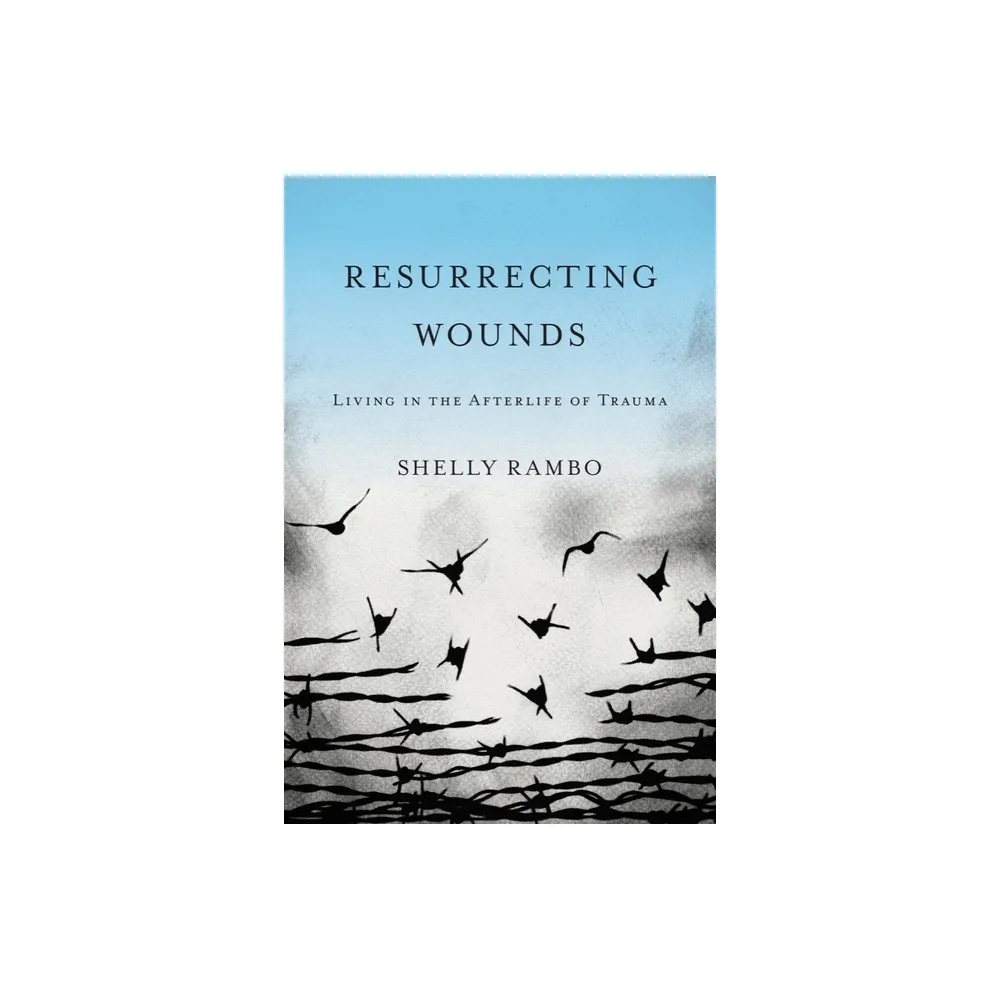Home
Resurrecting Wounds - by Shelly Rambo (Paperback)
Loading Inventory...
TARGET
Resurrecting Wounds - by Shelly Rambo (Paperback)
From Baylor University Press
Current price: $29.99


TARGET
Resurrecting Wounds - by Shelly Rambo (Paperback)
From Baylor University Press
Current price: $29.99
Loading Inventory...
*Product Information may vary - to confirm product availability, pricing, and additional information please contact TARGET
About the Book By returning again and again to Christs woundedness, we discover ways to live with our own. Book Synopsis The Gospel of Johns account of doubting Thomas is often told as a lesson about the veracity and triumph of Christian faith. And yet it is a story about wounds. Interpretations of this Gospel narrative, by focusing on Christs victory in the resurrection, reflect Christianitys unease with the wounds that remain on the body of the risen Jesus. By returning readers to this familiar passage, Resurrecting Wounds expands the scope of the Upper Room to the present world where wounds mark all of humanity. Shelly Rambo rereads the Thomas story and the history of its interpretation through the lens of trauma studies to reflect on the ways that the wounds of race, gender, and war persist. Wounds do not simply go away, even though a close reading of John Calvin reveals his theological investments in removing wounds. This erasure reflects a dominant mode of Christian thinking, but it is not the only Christian reading. By contrast, Macrinas scar, in Gregory of Nyssas account of her life and death, displays how resurrection can be inscribed in wounds, particularly in the illumination of her body after her death. The scar, produced in and through a mothers touch, recalls a healing, linking resurrection to the work of tending wounds. Much like Christs wounds and Macrinas scar, racial wounds can be found on the skin of Americas collective life. The wounds of racial histories, unhealed, resurface again and again. The wounds of war persist as well, despite a cultural calculus that links the suffering of a soldier with that of Christ. Again, the visceral display of Jesus wounds, when placed at the center of Thomas encounter in the Upper Room, enacts a vision of resurrecting that addresses the real harm of the real wounds of war. The powerful Upper Room images of resurrection--encounters with wounds, the invitation to touch, and the formation of a community--present visions of truth-telling and of healing that grapple with the pressing questions of wounds surfacing in the midst of human encounters with violence, suffering, and trauma. While traditional accounts of resurrection in Christian theology have focused on the afterlife, this book forges a theology of resurrection wounds in the afterliving. By returning again and again to Christs woundedness, we discover ways to live with our own. Review Quotes ...Rambo exceeds expectations with a masterful and surprisingly daring venture to reconsider theologies of resurrection in the afterlife or ongoingness of trauma. --Amy McLaughlin-Sheasby Homiletic An important and beautifully written contribution to current theological discourse on trauma. --Hannah Jones Reading Religion Rambo pushes the theological envelope in order to give us space to breathe, rest, and heal. Her writing is so delicately constructed that even the most resistant reader will be forced to stop and consider her groundbreaking interpretation of the encounter between Jesus and Thomas and the reality of wounds. Both this book, as well as her earlier one (Spirit and Trauma), should be required reading for seminarians, clergy, counselors and others who minister to people navigating the aftermath of trauma. --Paula Owens Parker Interpretation: A Journal of Bible and Theology The breadth and creativity of Rambos intertextual analysis is exciting, and her multivalent reading of John 20 will undoubtedly spur reflection on suffering, resurrection, and salvation. --Jessica Coblentz Horizons About the Author Shelly Rambo is Associate Professor of Theology at Boston University.






